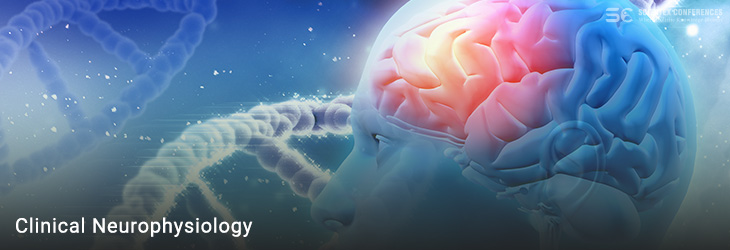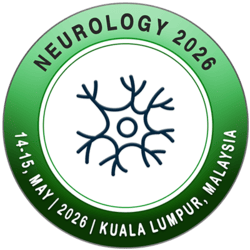Track: Clinical Neurophysiology

Session Overview:
The "Clinical Neurophysiology" session at the Neurology 2025 will delve into the latest advancements and practical applications in neurophysiology. This session is tailored to offer participants a comprehensive understanding of cutting-edge techniques such as high-density EEG arrays and advanced magnetoencephalography (MEG) for improved brain activity mapping and localization of epileptic foci. We will also explore the integration of neurophysiological data with neuroimaging technologies like fMRI, and the use of artificial intelligence for enhanced data analysis and diagnostic accuracy. Key discussions will include novel biomarkers for early detection of neurodegenerative diseases and their impact on clinical practice. Through interactive case studies and live demonstrations, attendees will gain insights into real-world applications and emerging trends in the field. This session aims to enhance participants' expertise, foster collaboration, and drive forward innovative approaches in clinical neurophysiology.
Recent Development:
Recent advancements in Clinical Neurophysiology include several key innovations and discoveries. High-density EEG arrays have been developed, providing enhanced spatial resolution for brain activity mapping, while Magnetoencephalography (MEG) techniques now offer more precise localization of epileptic foci. Novel biomarkers have been identified for early detection of neurodegenerative diseases like Alzheimer’s and Parkinson’s, improving diagnostic accuracy. Integration of EEG with functional MRI (fMRI) has enabled a more comprehensive understanding of brain function and connectivity. Artificial Intelligence (AI) and machine learning are being applied to automate the analysis of EEG and EMG data, boosting diagnostic efficiency. Notable case studies demonstrate the successful application of advanced neurophysiological assessments in managing complex neurological disorders such as treatment-resistant epilepsy and rare movement disorders. Recent research findings emphasize the role of neurophysiological markers in predicting treatment responses and disease progression, marking significant progress in the field.
Sub-tracks:
Advanced Electrophysiological Techniques
Focuses on the latest developments in EEG, EMG, and evoked potentials, including high-density EEG arrays and improved signal processing methods for more accurate diagnostics.
Neurophysiological Biomarkers
Explores recent discoveries of biomarkers for early diagnosis and monitoring of neurological disorders, and their implications for personalized treatment strategies.
Integration with Neuroimaging
Discusses the synergy between neurophysiological assessments and neuroimaging technologies like fMRI, enhancing the understanding of brain function and connectivity.
Artificial Intelligence and Machine Learning
Examines the application of AI and machine learning in analyzing neurophysiological data, improving diagnostic efficiency and predictive capabilities.
Clinical Applications and Case Studies
Presents real-world case studies illustrating the practical application of advanced neurophysiological techniques in managing complex neurological conditions and treatment-resistant disorders.
Neurophysiological Monitoring in Surgery
Techniques and advancements in intraoperative monitoring of brain and spinal cord functions to enhance surgical safety and outcomes.
Neurophysiology of Epilepsy
Studies focused on the electrophysiological patterns associated with epilepsy, including seizure prediction and localization techniques.
Neurophysiological Assessment of Movement Disorders
Insights into the neurophysiological mechanisms underlying disorders such as Parkinson’s disease and dystonia, including motor control and gait analysis.
Neurophysiology of Sleep Disorders
Exploration of sleep-related neurophysiological abnormalities, including sleep studies and their impact on conditions like insomnia and sleep apnea.
Developmental and Pediatric Neurophysiology
Examination of neurophysiological changes and disorders in children, including developmental milestones and early detection of neurological conditions.
Scientific Highlights
- Neurology
- Neuro Anatomy
- Mental Health and Psychiatry
- Geriatric Neurological Disorders
- Neuromuscular Diseases
- Brain Tumor and Neuro-oncology
- Cerebrovascular and Critical Care Neurology
- Clinical Neurophysiology
- Central Nervous System
- Neuro-Ophthalmology
- Pediatric Neurology
- Neuroimaging and Brain Mapping
- Neurogenetics and Neurodegenerative Disease
- Behavioral and Cognitive Neuroscience
- Neurochemistry and Neuropharmacology
- Spinal Neurosurgery and Neural Transplantation
- Neuro Robotics and Neuro Modulators
- Addiction and Adult Psychology
- Brain Stimulation and Computational Neuroscience
- Neural Control of Micturition
- Parkinson's Disease


